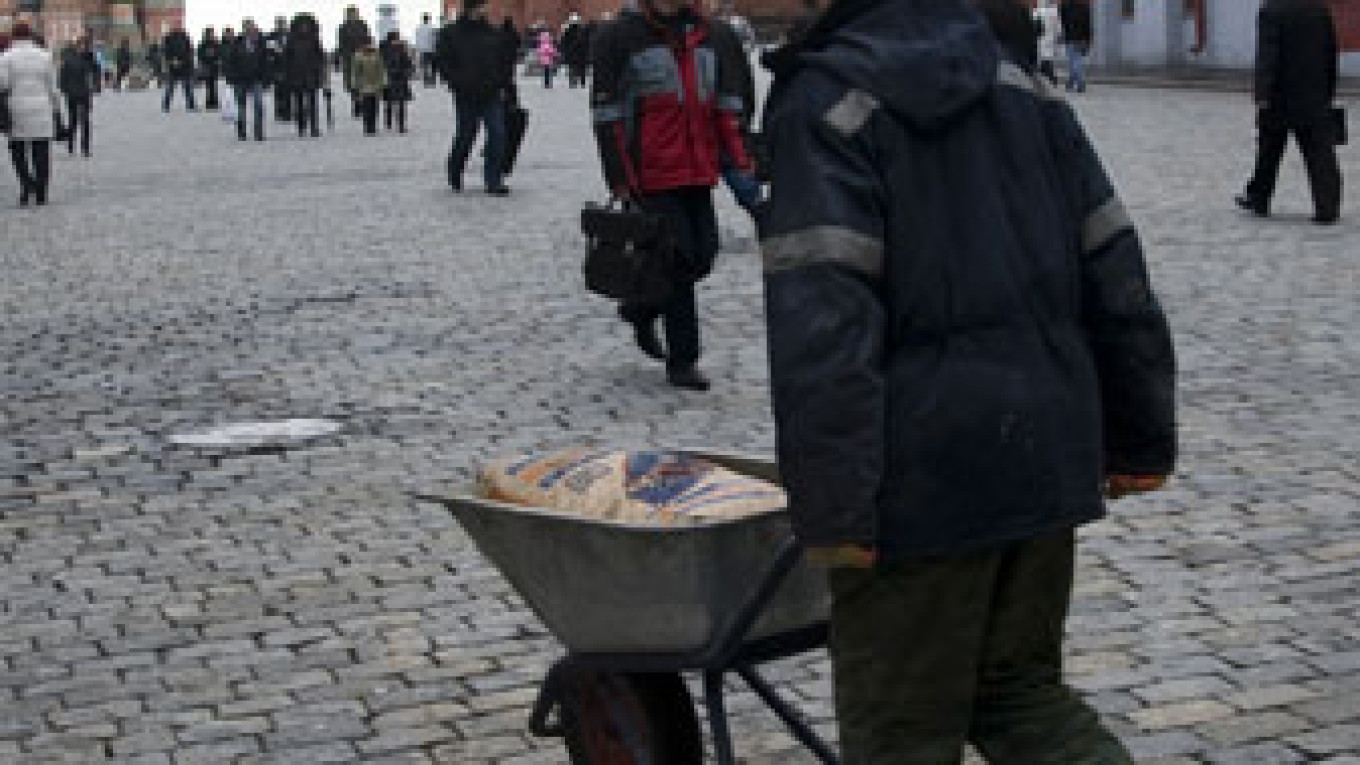Prime Minister Vladimir Putin has ordered federal agencies to simplify the rules for internal migration in a move that could help laid-off Russians to land jobs elsewhere in a country with extremely low labor mobility.
Putin instructed the agencies, including the Federal Migration Service, to make it easier for people to obtain the residence permits that tie Russians to a single address in an echo of the Soviet and tsarist past, the Cabinet said on its web site Saturday.
“People feel like serfs when they move from one city to another,” said Dmitry Poletayev, who tracks migration issues at the Russian Academy of Sciences. “This has remained intact from the Soviet times.”
The order, which Putin signed on June 1, prescribes drafting proposals for people to apply for residence permits by post or online instead of facing often rude and corrupt officials. When the changes take effect, migration offices should either mail back the permits by post or stamp them into internal passports on the same day that a person files to register at a new address.
Currently, the process of getting the stamp involves days of waiting, with the risk of having to bribe the police who, especially in migrant-magnet Moscow, hunt down newcomers — Russians and foreigners — and demand to see residence permits among their identification papers.
Putin said he wanted the proposals by late August. He also tasked the Economic Development Ministry and the Media and Communications Ministry to participate in hammering out the improvements.
Single-industry towns — built around a major steelmaker, defense plant or coal mine — drew a chunk of government cash to support residents last year after the global economic debacle caused many employers to reduce production and lay off staff. Putin and President Dmitry Medvedev have since heralded greater labor mobility as a way to combat high unemployment.
“It's difficult for a Russian to move to a new job elsewhere,” Medvedev said last year. “That's why we need to support and encourage this.”
Another reason to ease movement around the country is a contraction of the working-age population that, according to the latest Economic Development Ministry forecast, will shrink by 500,000 people by the end of 2013 despite incoming foreign migrants.
The changes that Putin is seeking would end the disparity between Russians and foreigners, who have been using the simpler residence permit rules since 2007, said Poletayev and Vladimir Mukomel, a social studies researcher with the Russian Academy of Sciences.
In addition to Moscow, migrants mainly choose the Moscow region and the country's second-largest city, St. Petersburg, as a destination because of the relatively high pay, Mukomel said. Oil- and natural gas-producing regions such as Yamal-Nenets, Khanty-Mansiisk and Tyumen also draw labor from around Russia, he said.
Implemented alone, an ability to settle residence permit issues without excruciating hassles would not bring about much greater worker mobility, Mukomel said. A major problem migrants face is finding affordable housing, he said.
Of all apartments, only 5 percent to 15 percent are available for rent in Russia, according to Leonid Davydov, chief executive of the state-run VTsIOM pollster. The shortage of supply prompts high rates, he said in an article published on the agency's web site last month.
Compared with the other large economies, Russia is home to some of the most reluctant people to look for a job outside of their native area. An average American moves 13 times in his life and a Briton seven times, but a Russia moves just 1.5 times, Davydov wrote.
Internal migration dropped by 12 percent last year to 1.7 million people, or the level circa 1897, he said.
A Message from The Moscow Times:
Dear readers,
We are facing unprecedented challenges. Russia's Prosecutor General's Office has designated The Moscow Times as an "undesirable" organization, criminalizing our work and putting our staff at risk of prosecution. This follows our earlier unjust labeling as a "foreign agent."
These actions are direct attempts to silence independent journalism in Russia. The authorities claim our work "discredits the decisions of the Russian leadership." We see things differently: we strive to provide accurate, unbiased reporting on Russia.
We, the journalists of The Moscow Times, refuse to be silenced. But to continue our work, we need your help.
Your support, no matter how small, makes a world of difference. If you can, please support us monthly starting from just $2. It's quick to set up, and every contribution makes a significant impact.
By supporting The Moscow Times, you're defending open, independent journalism in the face of repression. Thank you for standing with us.
Remind me later.


